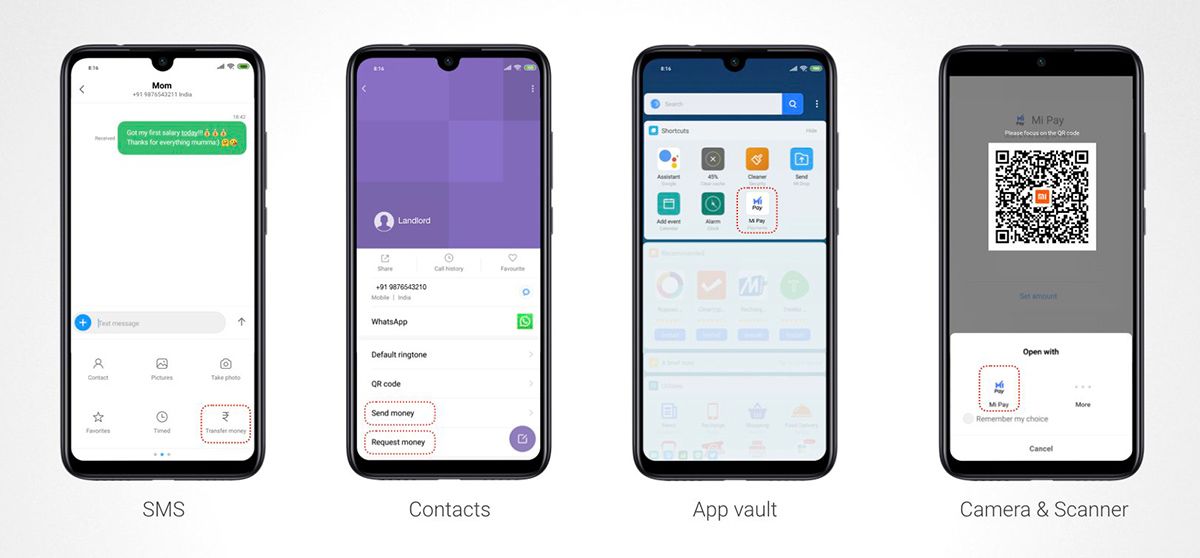Redmi Go, launched in India today, is Xiaomi's most affordable smartphone yet. While its $65 price tag definitely stole the show, Xiaomi also made two major announcements at the event. India's leading smartphone company launched Mi Pay, a UPI-based payments app deeply integrated within MIUI and announced a new manufacturing unit under "Make in India" which will help increase the smartphone production capacity by 50%.
Mi Pay
Mi Pay is a payments solution which offers many easy ways to transfer money using Unified Payments Interface (UPI). MIUI users can send or request money from apps such as Contacts, SMS, Settings, Scanner, and App Vault. Similar to other UPI payments apps including Bhim, Google Pay (formerly Tez), or Paytm, Mi Pay has also received the compulsory certification from National Payments Council of India (NPCI) for secure payments and complies with RBI's data regulations. The service was launched in December last year for users running MIUI beta and has now begun rolling out to stable builds.
Besides facilitating standard UPI transactions, Mi Pay will also allow users to pay utility bills using credit or debit cards. Currently, Xiaomi says that it supports 120+ billers and 120 national and regional banks in India, which seems like a good start. It is an easy way for users in most towns and cities of India to pay bills for water, electricity, and cooking gas. Users can also pay phone bills or recharge their phones using the app.
Currently, Mi Pay is only for Xiaomi smartphones in India running on MIUI while Android One devices Xiaomi Mi A1 and Xiaomi Mi A2 as well as the Redmi Go, running on Android 8.1 Oreo (Go Edition), stand excluded from the list of supported phones. We are yet to find out whether it works on smartphones from other companies running MIUI as a custom ROM. Meanwhile, if you're using MIUI, you can download Mi Pay from the Mi Store to try the app.
7th Manufacturing Plant under "Make in India": 3 phones every second
Xiaomi has announced its seventh manufacturing plant in India in partnership with Flex Ltd. to reap incentives under "Make in India." This plant has been opened in Sriperumbudur, the small town in the state of Tamil Nadu which is home to many automotive manufacturing facilities and as well as Nokia's now-defunct smartphone manufacturing unit.
Xiaomi says that by including the newest facility, it will be able to produce three smartphones every second against two previously, which by simple math translates to a 50% bump in production. Xiaomi says that it now employs a total workforce of 20,000 at its manufacturing plants across India with 95% of the employees being women.
Xiaomi is already sourcing 65% of the components locally while assembling 100% of the PCBs in India. The new manufacturing plant is expected to help Xiaomi meet the growing demand for price-effective Xiaomi and Redmi smartphones.


